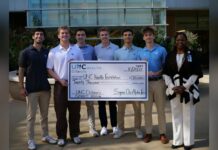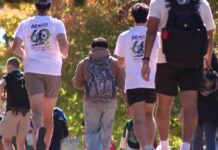Editor’s Note: This article contains reference to sexual assault.
NC State’s Office of Fraternity and Sorority Life is implementing new initiatives designed to address and prevent sexual assaults on and outside campus.
The Encouraging Positive Intervention in Chapters, or EPIC, program educates Greek organizations on alcohol and drug use, brave and bold dialogue and sexual violence prevention. According to the FSL website, the program “will build capacity of chapter leaders and their members to engage with these complex topics and how they take responsibility to address them.”
Shelly Brown Dobek, director of Fraternity and Sorority Life, said this means that FSL needs to take a comprehensive approach to preventing sexual assaults on campus.
“We need to think about initiatives that support either the understanding of the eradication, of the mitigating, of the education, of the reporting of with a lens of, how does [sexual assault] uniquely impact our community,” Dobek said.
This year, the University implemented a new resource package titled “It Matters.” The training is an online module series with three courses on sexual violence education. First-year students are assigned a core course, while FSL members complete additional modules on consent and bystander intervention.
David Elrod, associate vice provost for the Office of Equal Opportunity, chose a sexual violence prevention core course that all first-year students are assigned to. Dobek chose one that builds on sexual violence prevention and focuses on foundational knowledge, understanding consent and upstander strategy.
“What we call an upstander strategy, the idea that I am my brother’s keeper or my sister’s keeper, so not that I’m responsible for his or her behavior, but how do I learn to recognize when things are inappropriate and how do I learn to interrupt that behavior to make sure either that I’m keeping my sister safe or that I’m interrupting my brother if he’s making a risky choice?” Dobek said.
While the “It Matters” modules were delayed initially, they were released three weeks ago with a test sample sent out beforehand. Next year, the modules will be distributed earlier so members can complete them before new member activities begin.
With 3,600 members in FSL, groups of 40 attend in-person workshops annually. Each year, a different topic is rotated to ensure comprehensive coverage of EPIC programs. New members are prioritized for these workshops due to their unfamiliarity with the campus environment. Members who do not attend in-person workshops complete online modules instead. A chapter receives credit after 85% of its members have completed the training.























